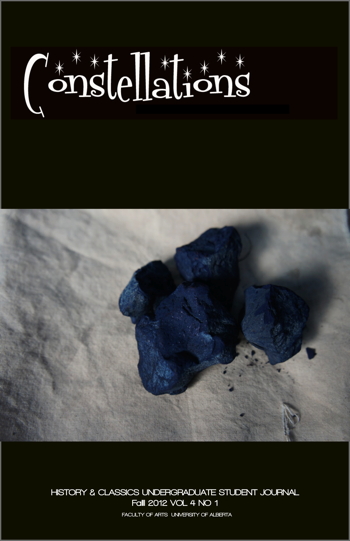Blood and Death of Rome in Lucan’s Bellum Civile
DOI:
https://doi.org/10.29173/cons18867Abstract
This paper is an analysis of the symbolism of blood in Lucan’s epic poem Bellum Civile. The first part of the article discusses several examples that show Lucan’s interest in the value that blood has when it is flowing inside someone’s body, and conversely the loss of that value when the blood is shed in battle. It then reveals a parallel between the unusual descriptions of the flow of blood, and the more usual descriptions of the natural flow of water. Various examples of this parallel suggest that Lucan develops a striking image of the bloodshed of Romans becoming as normal as natural phenomena. This bloodshed thus represents the inevitable death of Rome caused by this civil war, since Lucan subtly suggests that the bloodshed and death of individual Romans only translates into the bloodshed and death of Rome itself after the main battle of this war. The theory advanced by this paper can add to the theories of some recent scholarship on this poem, which generally argues that Lucan is not so optimistic about the future of Rome as was once believed.Downloads
Published
2013-01-29
How to Cite
Kubish, A. (2013). Blood and Death of Rome in Lucan’s Bellum Civile. Constellations, 4(1). https://doi.org/10.29173/cons18867
Issue
Section
Articles


